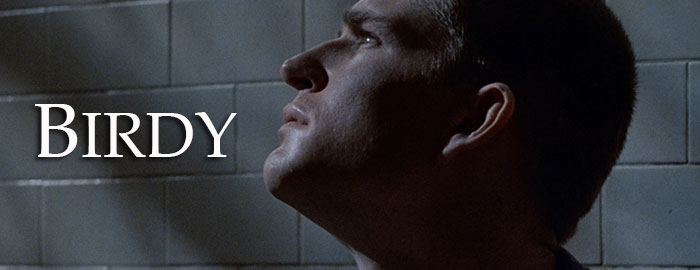
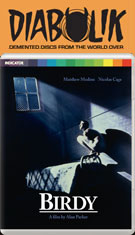

 the back to back success of Midnight
the back to back success of Midnight 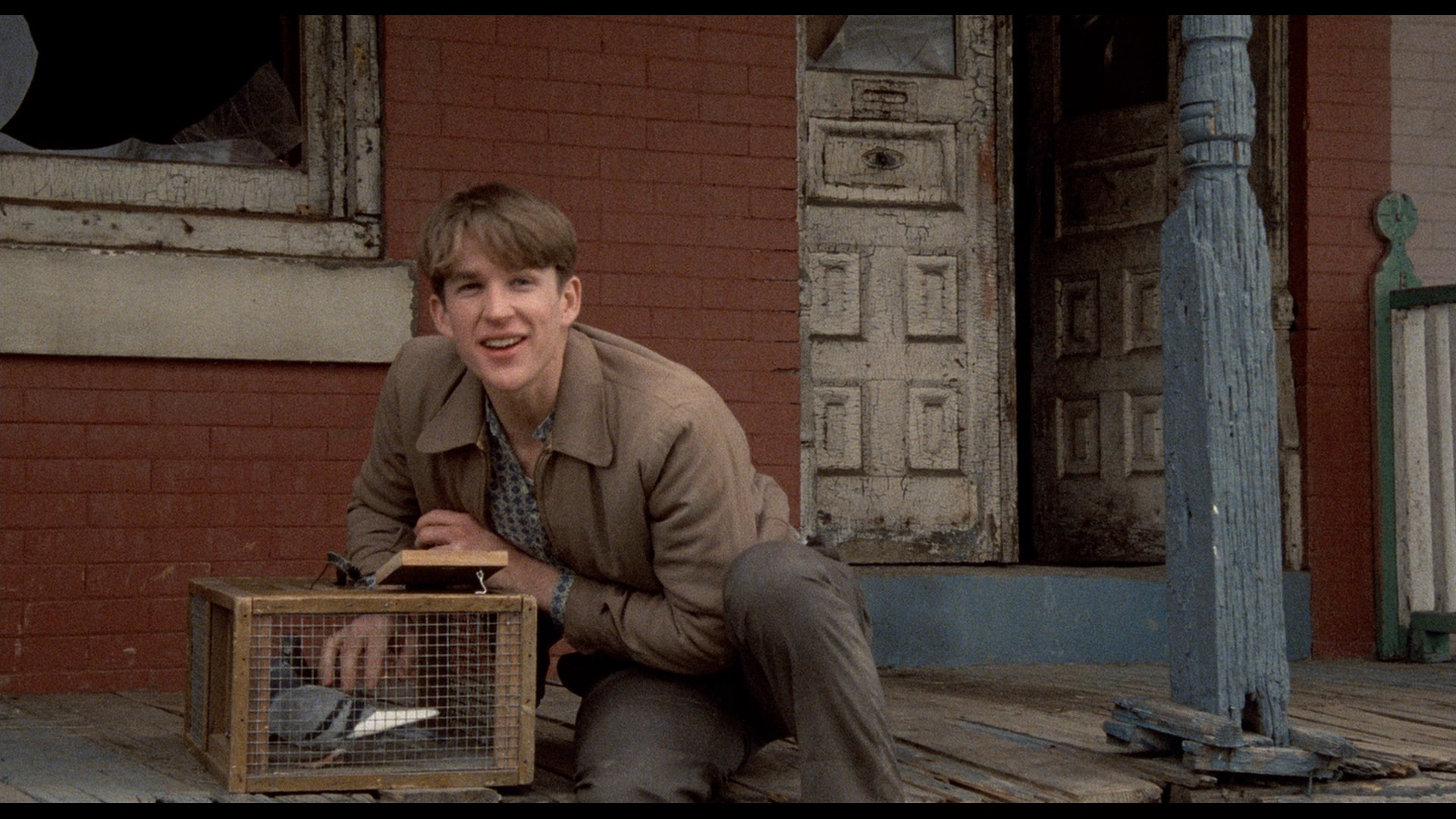 Express and Fame, British director Alan Parker had carte blanche to tackle just about any projects he wanted in Hollywood. In what could never be termed selling out by anyone, he decided to hit audiences with two very dark films in 1982, Shoot the Moon and Pink Floyd: The Wall, and chase them down in 1984 with Birdy, a Vietnam-themed drama based on a 1978 World War II-set novel by William Wharton. Unfortunately the film preceded the huge 'Nam prestige movie wave that would come soon with Oliver Stone's Platoon and Parker's film ended up with a muted reception from audiences, but since then it has remained a fan favorite of those who discovered it on TV and home video.
Express and Fame, British director Alan Parker had carte blanche to tackle just about any projects he wanted in Hollywood. In what could never be termed selling out by anyone, he decided to hit audiences with two very dark films in 1982, Shoot the Moon and Pink Floyd: The Wall, and chase them down in 1984 with Birdy, a Vietnam-themed drama based on a 1978 World War II-set novel by William Wharton. Unfortunately the film preceded the huge 'Nam prestige movie wave that would come soon with Oliver Stone's Platoon and Parker's film ended up with a muted reception from audiences, but since then it has remained a fan favorite of those who discovered it on TV and home video. 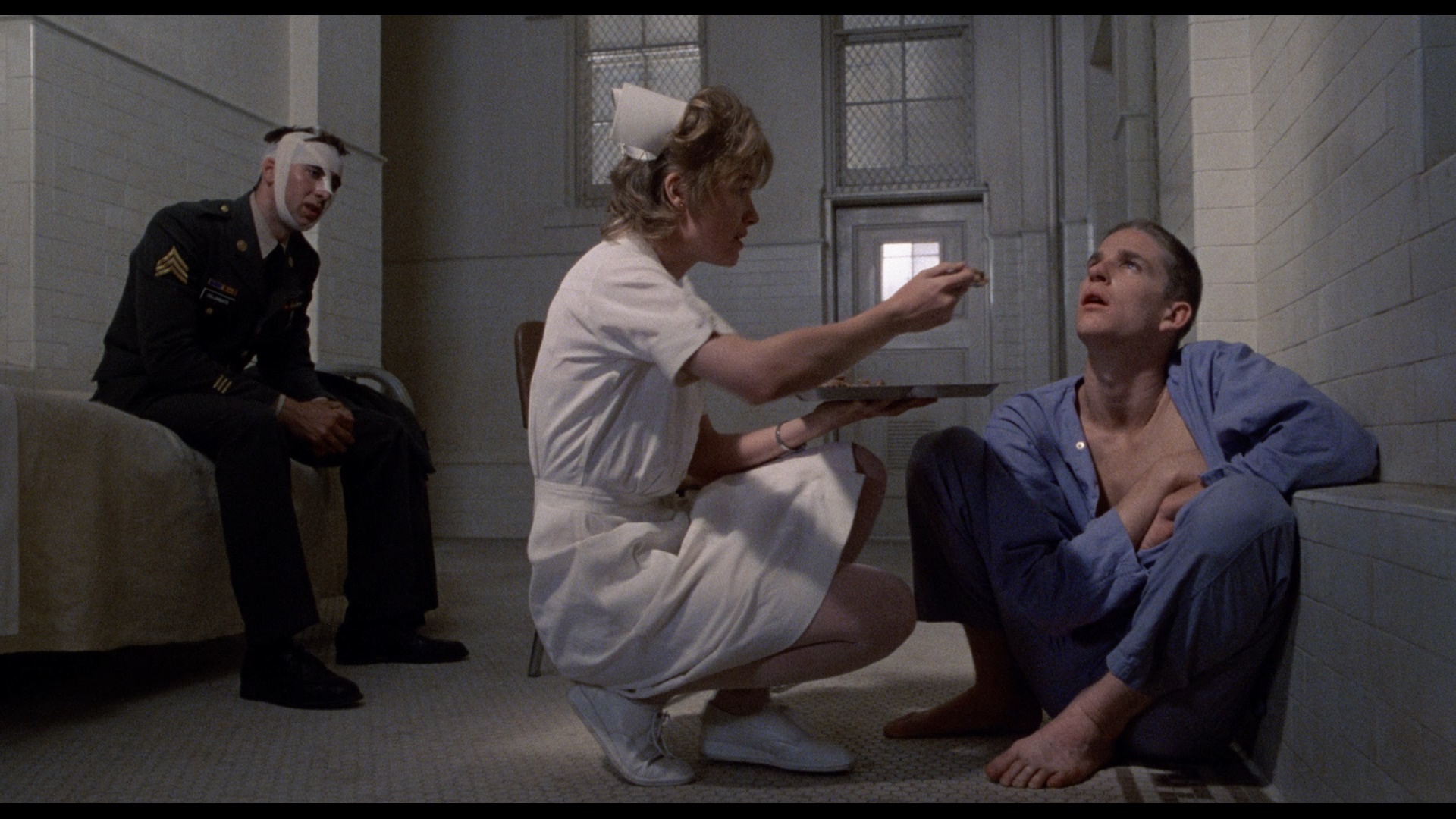 more uplifting than audiences probably expected. Parker was on a very hot creative streak here
more uplifting than audiences probably expected. Parker was on a very hot creative streak here 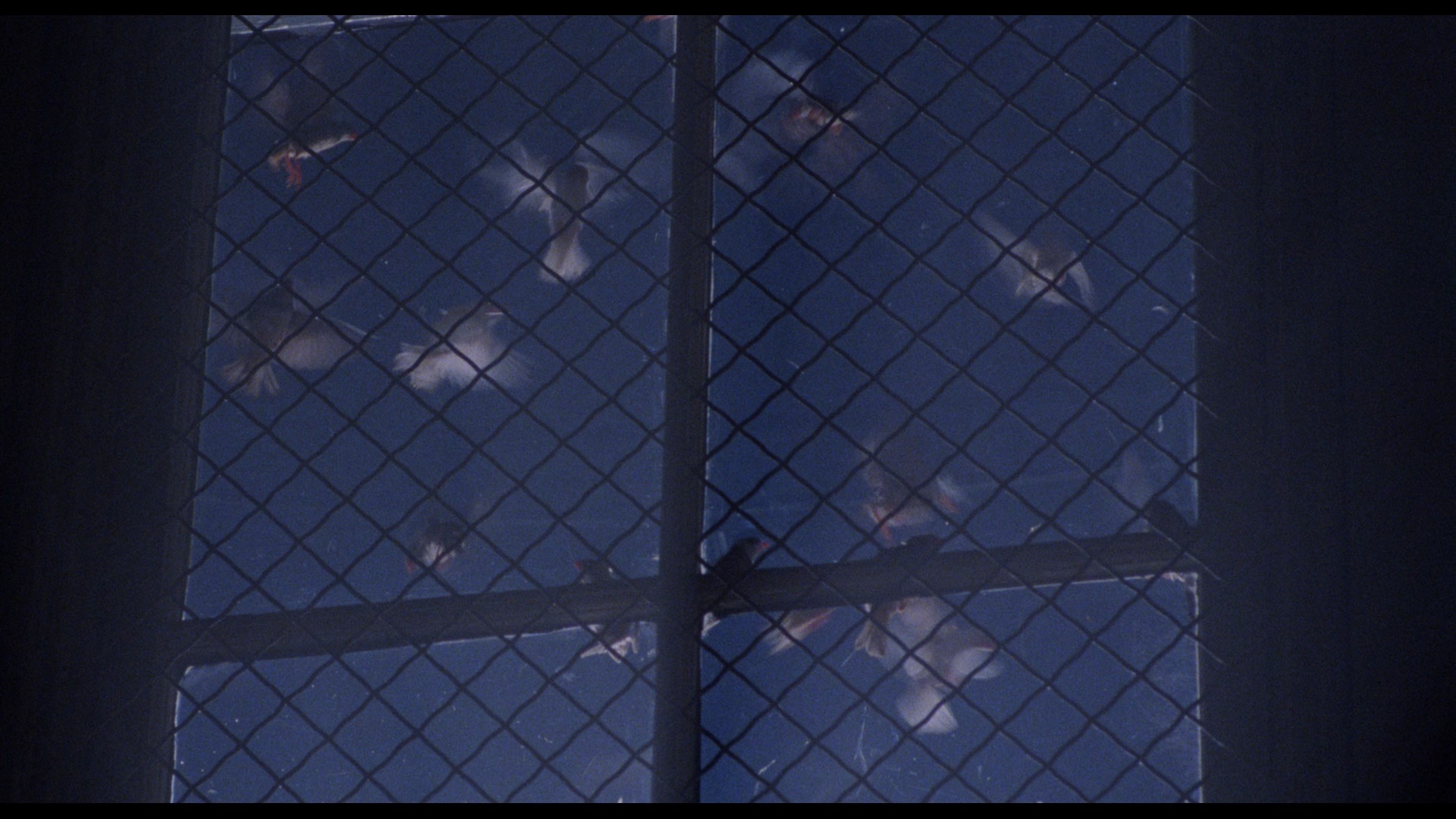 and proves to have a sense of warmth and mercy here that helps this stand apart from its peers and linger in the memory. The two very committed central performances certainly help, too, with Modine and Cage embodying their roles so thoroughly it's almost uncanny at times. The film also earns its place in the history books with the first film score composed by Peter Gabriel, who was working on So at the time and of course went on to glory scoring The Last Temptation of Christ. His subdued, fascinating instrumental score threw some fans for a loop upon its initial release, but the soundtrack itself has since become a bit of a cult favorite as well.
and proves to have a sense of warmth and mercy here that helps this stand apart from its peers and linger in the memory. The two very committed central performances certainly help, too, with Modine and Cage embodying their roles so thoroughly it's almost uncanny at times. The film also earns its place in the history books with the first film score composed by Peter Gabriel, who was working on So at the time and of course went on to glory scoring The Last Temptation of Christ. His subdued, fascinating instrumental score threw some fans for a loop upon its initial release, but the soundtrack itself has since become a bit of a cult favorite as well. 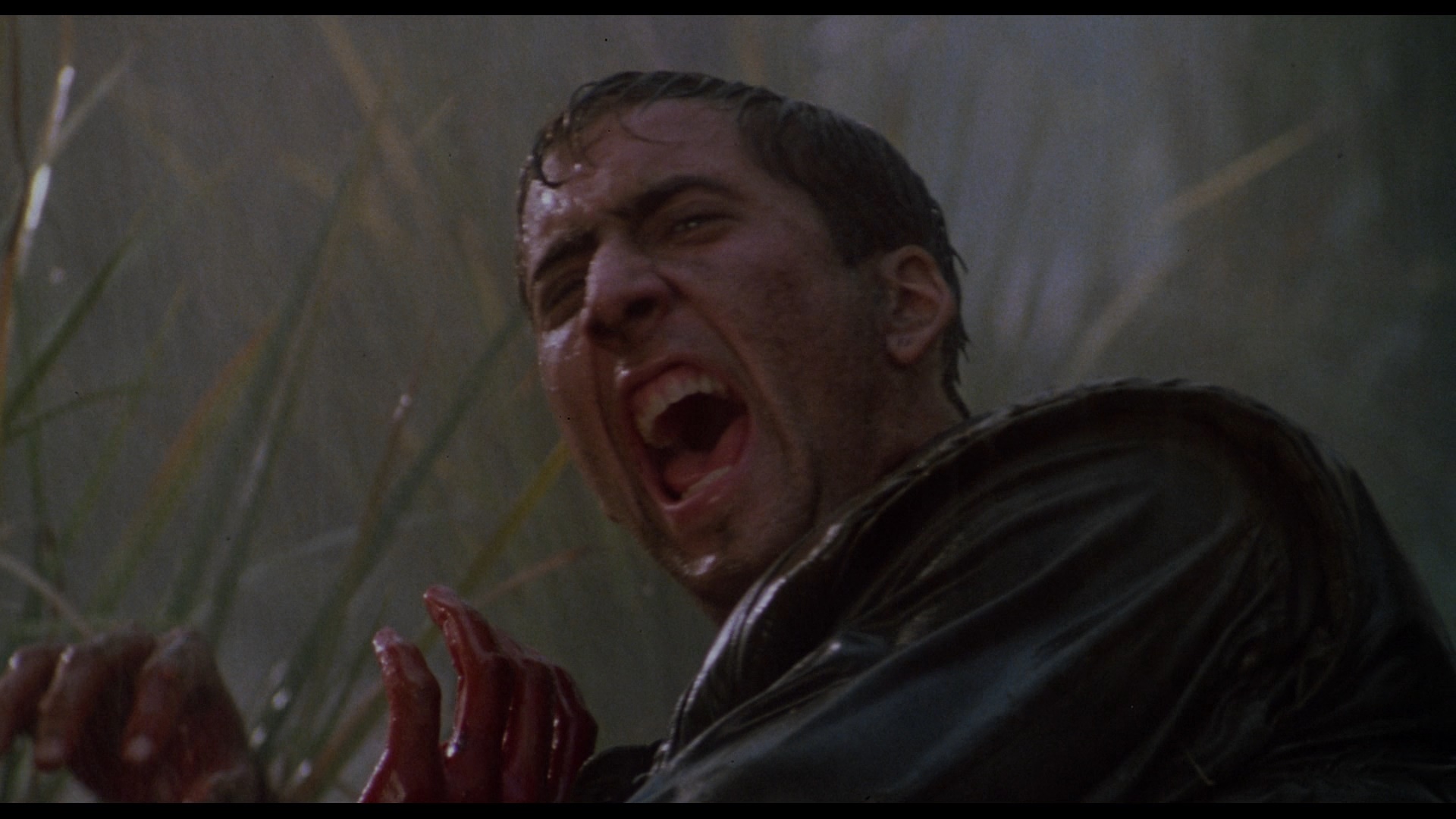 than the earlier DVD editions, and the often muted, cool color scheme looks accurate to the original theatrical presentation. The LPCM 2.0
than the earlier DVD editions, and the often muted, cool color scheme looks accurate to the original theatrical presentation. The LPCM 2.0 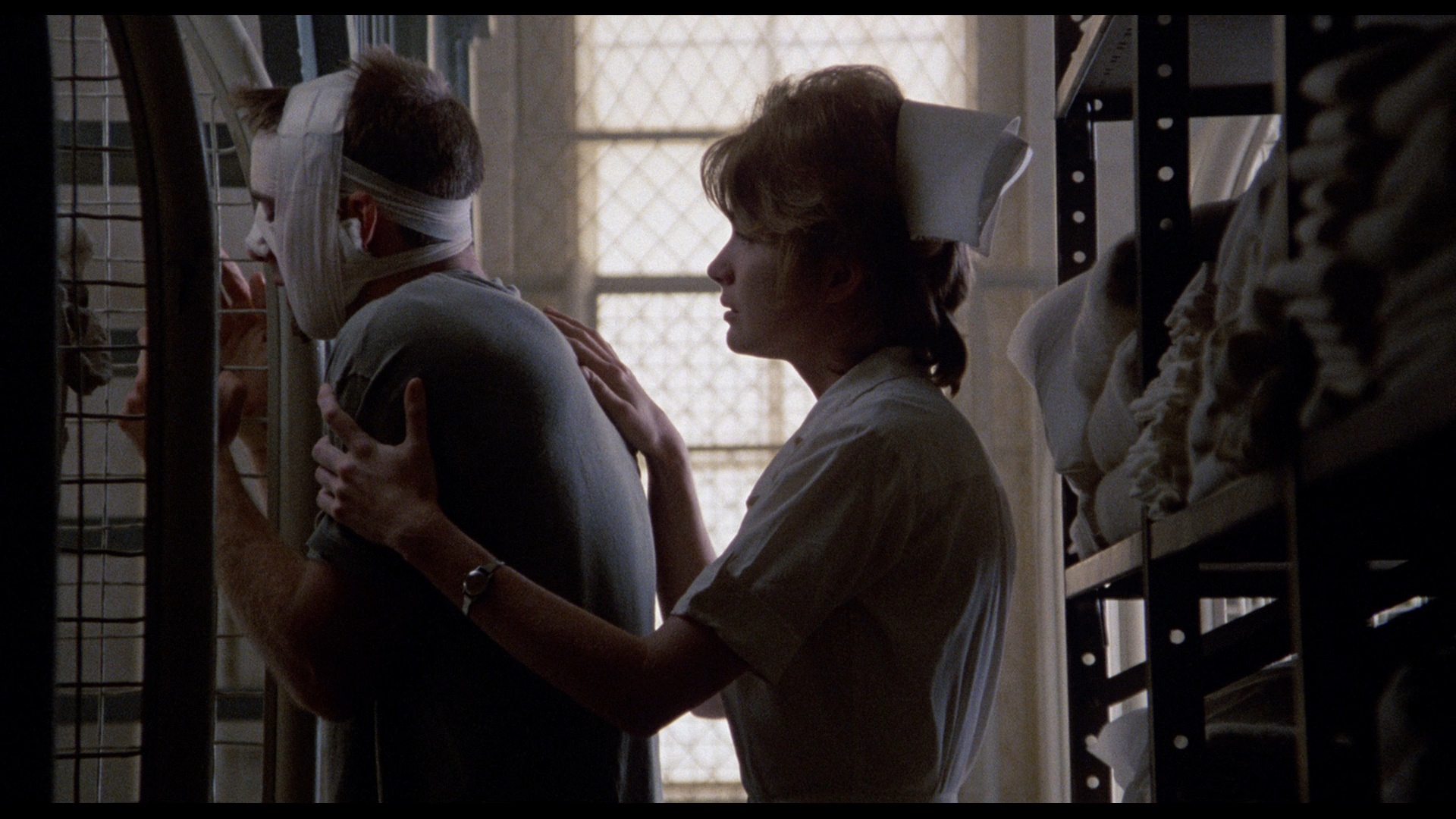 English stereo audio is also very satisfying and has some nice separation effects for Gabriel's score as well as some jolting explosions in the final act. Optional English SDH subtitles are also included.
English stereo audio is also very satisfying and has some nice separation effects for Gabriel's score as well as some jolting explosions in the final act. Optional English SDH subtitles are also included. 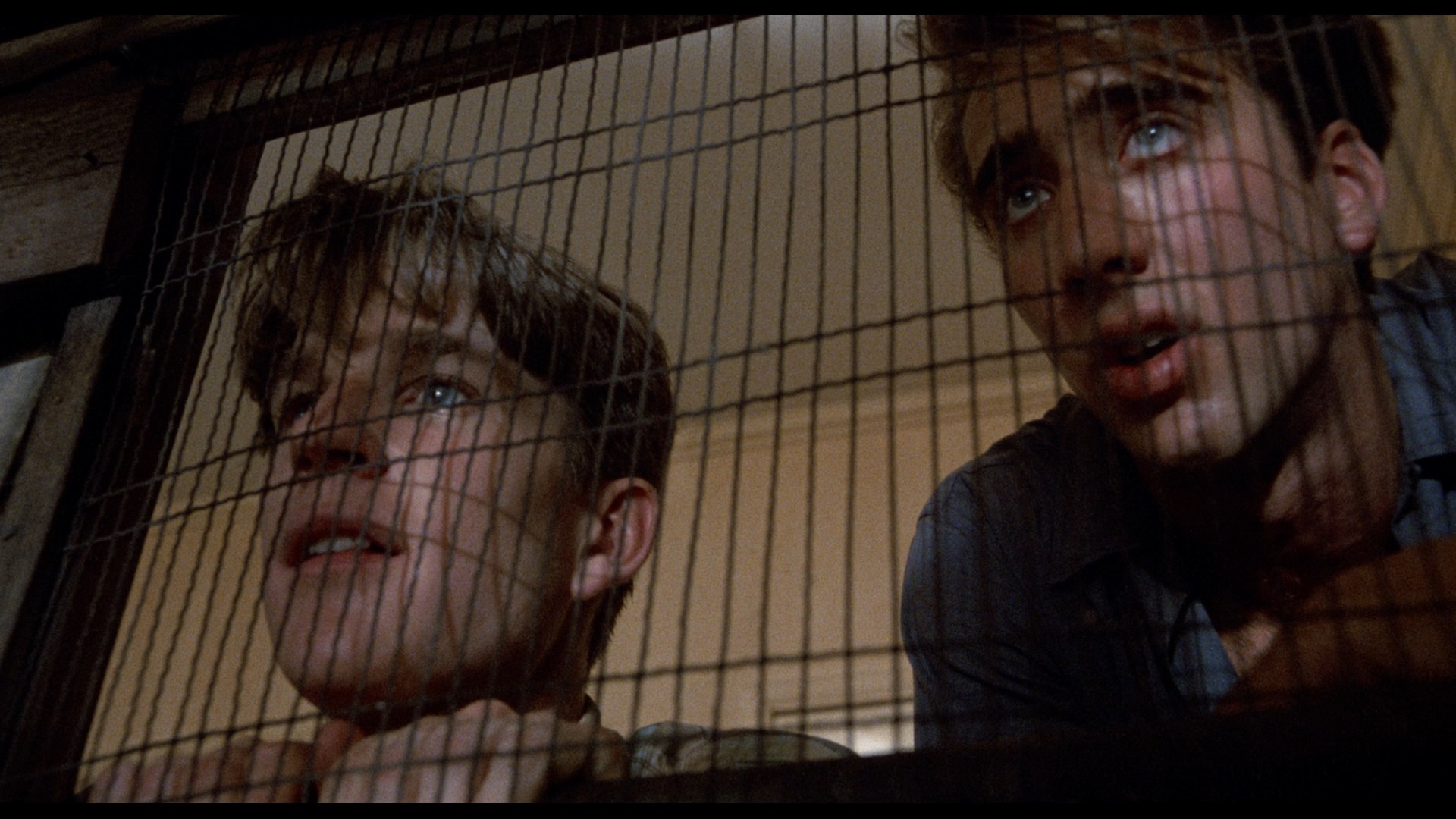 Music for
Music for  Birdy" (6m42s) features the composer speaking (very softly) about the aspects that drew him to the film, the influence of Brian Eno, and the modes of classical music he integrated into his compositional process along with some new electronic innovations that had just come on the market. In "Bird Watching" (16m41s), filmmaker Keith Gordon talking about his own connection to Wharton's novels through his own war-related film, A Midnight Clear, and explains how the reclusive author's writing style lends itself to cinematic interpretation and reflects the pain he experienced in real life during and following World War II. The 1976 short No Hard Feelings (54m42s), a gritty and very sober depiction of love blossoming during the blitz on London by the Germans during World War II, marked a shift from TV commercials to narrative filmmaking for Parker and ended up being his calling card to bigger and better things when it was picked up to run along with his more high-profile war story for TV, The Evacuees. It's a fascinating missing piece in his career, particularly considering it wound up airing the same year as his first theatrical feature, the very different Bugsy Malone. Also included are the theatrical trailer, a gallery of promotional material (21 images), and 27 archival items from Modine's own collection. In the usual Indicator fashion, the insert booklet is a notable extra in itself complete with new liner notes by Frank Collins, Parker's written document of the making of the film, notes on No Hard Feelings by Jeff Billington, and critical reactions from the initial release.
Birdy" (6m42s) features the composer speaking (very softly) about the aspects that drew him to the film, the influence of Brian Eno, and the modes of classical music he integrated into his compositional process along with some new electronic innovations that had just come on the market. In "Bird Watching" (16m41s), filmmaker Keith Gordon talking about his own connection to Wharton's novels through his own war-related film, A Midnight Clear, and explains how the reclusive author's writing style lends itself to cinematic interpretation and reflects the pain he experienced in real life during and following World War II. The 1976 short No Hard Feelings (54m42s), a gritty and very sober depiction of love blossoming during the blitz on London by the Germans during World War II, marked a shift from TV commercials to narrative filmmaking for Parker and ended up being his calling card to bigger and better things when it was picked up to run along with his more high-profile war story for TV, The Evacuees. It's a fascinating missing piece in his career, particularly considering it wound up airing the same year as his first theatrical feature, the very different Bugsy Malone. Also included are the theatrical trailer, a gallery of promotional material (21 images), and 27 archival items from Modine's own collection. In the usual Indicator fashion, the insert booklet is a notable extra in itself complete with new liner notes by Frank Collins, Parker's written document of the making of the film, notes on No Hard Feelings by Jeff Billington, and critical reactions from the initial release. ![]()